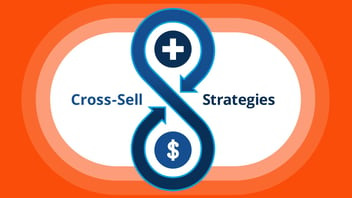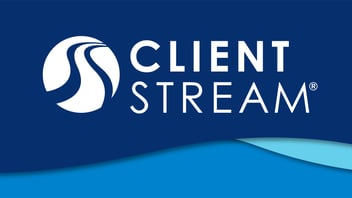
A Comprehensive Approach for Insurance Agents and Financial Industry Professionals
How do I drive more local prospects to my website?

If you have a website, then you should be aware of search engine optimization (SEO). SEO is a set of principles insurance agents and financial advisors can apply to their website so that it ranks higher on search engine results pages (SERPs) such as Google, Bing, Yahoo, etc. Enhancing your SEO gives you an advantage over your competition because it can improve your website ranking for keyword terms and increase the number of prospects who visit your website.
If you’re an agent or advisor just starting the SEO-improvement process, be patient because it’s not always easy. However, if you stick it out, the rewards can be substantial. Here’s a tip for beginners: Instead of jumping straight onto the national stage, try establishing yourself on a local level. Many insurance agents and financial advisors run their businesses at the local level, so it makes sense to apply local tactics when applying SEO strategies.
What Will You Learn?
This article provides proven ways to improve your SEO at the local level. It’s designed to get you thinking about the possibilities and get you leaning toward action. Plus, Senior Market Sales® (SMS) provides a complimentary step-by-step guide to help you take said action when you’re ready.
What is Local Area Search?
In general, SEO is the practice of making improvements to your website in order to rank higher in search engine results. The more optimized your website is, the more likely search engines are to recommend it to users. SEO is a term used broadly and it applies to a great deal of digital marketing tactics. Local-search SEO is a subset of SEO. Although they are similar in many ways, local searches have some key differences as compared to broader ones when it comes to how to maximize SEO opportunities.
Users, or potential prospects in this case, use different methods to find the information they are looking for. For example, a prospect searching for information about Medicare Advantage plans may search for:
- Medicare Advantage plans
- Medicare Advantage plans near me
- Medicare Advantage plans Iowa
- Medicare Advantage plans near 50023
 All of these searches will return information about Medicare Advantage plans. However, the results will likely be different for each because of the local area scope applied. The search “Medicare Advantage plans” is a broad-scope search that generates a large number of results, many of which won’t apply to your locale. In contrast, Medicare Advantage plans near 50023 will trigger local area search results and display results closest to that zip code.
All of these searches will return information about Medicare Advantage plans. However, the results will likely be different for each because of the local area scope applied. The search “Medicare Advantage plans” is a broad-scope search that generates a large number of results, many of which won’t apply to your locale. In contrast, Medicare Advantage plans near 50023 will trigger local area search results and display results closest to that zip code.
As a local business owner, your goal should be to identify the specific keyword terms and areas you want your business to display because this results in a larger capture of local area prospects. To optimize your ranking on the local level, there are some things you can do. These things are detailed in SMS’ exclusive guide. The following chart provides a summary.*
When to Expect Results from Local Area Search
Most insurance agents or financial planners will gain a positive boost from local area searches, but the time it takes to realize the benefits may vary. Like most other multi-variable systems, there are a lot of things that need to be right before it works. Be sure to avoid the temptation to cut corners or take shortcuts to “trick” Google with things like purchased five-star reviews. Google has a knack for finding these “tricks” and if you're seen doing these it could cause more harm than good to your Google ranking. It’s better to take your time and make sure each component is exactly the way you want it before moving on to the next.
One legitimate thing you can do to reduce the time-deductible needed to search success is to run pay-per-click (PPC) campaigns through Google. Again, the same logic applies; do not bid on “Medicare Advantage plan” searches for $20 per click. Instead, match your local area search content (something like “Medicare Advantage plan in Iowa”), and pay much, much less, while you wait for your organic results to catch up. There is no shame in using PPC ads. Many top organic-ranking businesses in insurance and financial planning use them.
Regarding PPC Campaigns:
- Results will vary and be specific to each user
- Multi-variable changes take time and refinement, users and Google both have a say in the deal
- Seasonality may affect the results
- Use custom tracking to monitor results and track all your leads
 This is Just Scratching the Surface
This is Just Scratching the Surface
As mentioned earlier, this blog is designed to get you to start thinking of the possibilities for improving your local search SEO rankings as an agent or advisor. Download SMS’ “Generate More Prospects Using Local Area SEO” guide for details regarding successfully implementing these tactics for maximum results and higher production.
Key Takeaways That the Guide Offers for Improving Your Local SEO Ranking
 |
1. Establish a Google My Business listing if you don’t already have one |
 |
2. Review the quantity of mentions of your business’ name, address, and phone number across the internet |
 |
3. Increase the number of five-star Google reviews |
 |
4. Increase the amount and quality of geographic content paired with keyword terms |
 |
5. Increase the amount and quality of backlinks from other local area websites |
If you're looking to improve your SEO even further, be sure to check out our blog SEO Practices Insurance Agents and Financial Advisors Can Use Now. The tips offered there can help boost your overall online presence and are easy to accomplish!

Who Is SMS?
SMS is a premier field marketing organization (FMO) that helps insurance agents and financial industry professionals save time, make more money and put their business in a position of distinction. If you’d like additional ways to improve your sales potential, do reach out to an SMS marketing consultant at 1.800.786.5566.
*Listed costs are estimates only. Results will vary.
For Licensed Insurance Agent/Advisor Use Only. Not for General Public.


8 Cross-Sell Strategies for Medicare Agents
As you grow your book of business and start generating more renewal income, it’s natural to shift from a “survival mode” mentality to more of a...


